Elysian Fields: Mysterious Resting Place For Heroic And Virtuous Souls In Greek Ancient Beliefs
A. Sutherland - AncientPages.com - The Elysian Fields were a prominent place where the deceased could enjoy an idyllic existence in a land of plenty.
If someone was once a brave hero or a good ruler, relative to the gods, or another virtuous person, the judges sent them to the Elysian Fields (Elysium), described as a vast land of abundance, peace, happiness, eternal spring, and flourishing gardens.
 "Elysium" by Léon Bakst (1866-1924) from 1906. Public Domain
"Elysium" by Léon Bakst (1866-1924) from 1906. Public Domain
It was believed to be located at a mysterious distant place somewhere at the end of the Earth.
According to some versions, the ruler of this magnificent realm was Kronos, son of Gaia (Mother Earth) and Uranus Lord of Heaven), and at the same time, father of Demeter, the goddess of harvest and agriculture, and many other deities like Hestia, Hera, Hades, Poseidon, and Zeus.
The ancient Greeks imagined life after death as less appealing than on Earth. At first, the souls of the deceased (both good and evil) were faced with crossing the river Styx (hate), the principal river in the Underworld, which formed the border between the upper, and lower worlds.
The souls were carried on a boat by Charon, the Ferryman, and a psychopomp of Hades. He charged a fee - a coin of 1 obole for his service. According to tradition, the family used to place the coin in the mouth of the deceased.
Charon delivered the deceased for judgment in front of three judges. There, the soul was tried and finally went to one of the three eternal rest places, among others, in the abode of the blessed - Elysium. The Righteous were heading to the right of the Forgotten River - Lethe (oblivion).
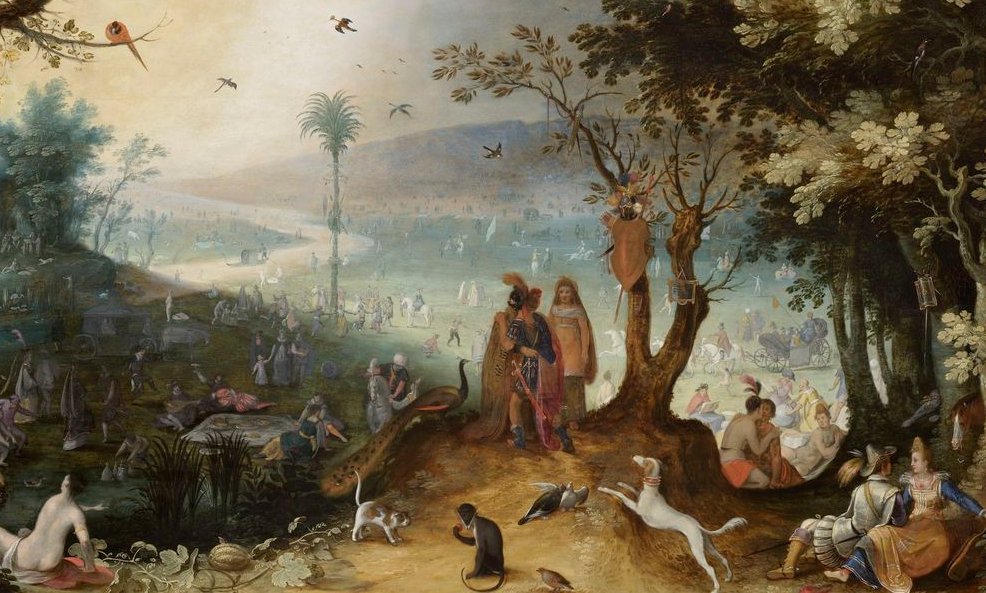 Aeneas meeting with his father in the Elysium. Sebastian Vrancx (1573–1647). Museum of Fine Arts of Lyon. Public Domain
Aeneas meeting with his father in the Elysium. Sebastian Vrancx (1573–1647). Museum of Fine Arts of Lyon. Public Domain
After drinking water from it, they forgot about earthly life. Their next stop was the Elysian Fields, a land of never-ending peace and happiness, where souls deprived of all sufferings and unnecessary desires walked through the meadows, filled with beautiful music from invisible lyres.
Others had no privilege of reaching Elysium.
Those souls, who had committed serious crimes against the gods, would be sent to the Fields of Punishment, a part of Tartarus. The place was reserved for the dead, like a giant Tityos (or Tityus), punished for his attempt to rape Leto. Sisyphus, and Tantalus, were judged to spend eternity.
Residents Of The Elysian Fields
Many famous deities resided in the realm of the Elysian Fields. Among them was King Menelaus of Sparta, a husband to Helen and thus also Zeus' son-in-law. (Homer Odyssey 4. 561-69)
According to prophecies by the sea god Proteus, Menelaus was not fated to die in Argos but instead was sent to the Elysian Fields with Helen, where 'soft zephyr-winds from the ocean blow continually to refresh mankind.'
 Elysian Fields by Arnold Böcklin. Source
Elysian Fields by Arnold Böcklin. Source
In Homer's Odyssey, book 11, we learn that Odysseus meets Achilles among the unhappy ghosts in the Underworld. But later, writers placed Achilles in a much more idyllic place in the afterlife - the Elysian Fields.
The Elysian Fields (or Isles of the Blessed) are first mentioned in Homer's Odyssey as a place where there is 'no snow and no winter,' but instead, there are 'singing winds of the West' refreshing all mankind.' (Odyssey, IV.637-639).
According to Homer, also fair-haired Rhadamanthys dwells in the Elysian Fields, "where life is most free from care for men."
Rhadamanthys was one of the three judges of the dead (two others were Aeacus and Minos). Writers such as Hesiod and Virgil presented another myth of the Elysian Fields. They referred to the realm as 'The Isle of the Blessed, and as such, it was the Garden of Eden in Christian beliefs.
Written by – A. Sutherland - AncientPages.com Senior Staff Writer
Updated on November 19, 2022
Copyright © AncientPages.com All rights reserved. This material may not be published, broadcast, rewritten or redistributed in whole or part without the express written permission of AncientPages.com
Expand for referencesHomer The Odyssey (1996) translated by Robert Fagles
Thomas, Blake Thomas. Mythology: Greek Legends & Gods & Goddesses of Olympus: Greece, King, Lighting
Unwin P. T. H. Wine and the Vine: An Historical Geography of Viticulture and the Wine Trade
J. Edward Wright, The Early History of Heaven
More From Ancient Pages
-
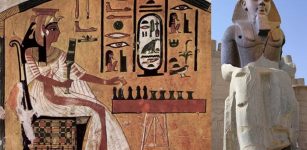 Queen Nefertari – Favorite Wife Of Ramses II The Great And Her Lavishly Decorated Tomb In The Valley Of The Queens
Featured Stories | May 22, 2020
Queen Nefertari – Favorite Wife Of Ramses II The Great And Her Lavishly Decorated Tomb In The Valley Of The Queens
Featured Stories | May 22, 2020 -
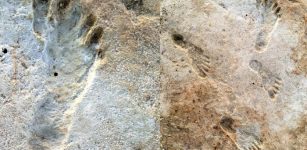 What Can Fossil Footprint Discoveries Tell Us About The Past?
Featured Stories | Aug 16, 2023
What Can Fossil Footprint Discoveries Tell Us About The Past?
Featured Stories | Aug 16, 2023 -
 Nicholas Roerich’s Search For Shambhala And Wish To Fulfill The Mysterious Buddhist Prophecy
Featured Stories | Nov 4, 2016
Nicholas Roerich’s Search For Shambhala And Wish To Fulfill The Mysterious Buddhist Prophecy
Featured Stories | Nov 4, 2016 -
 Mystery Of Saint Brendan’s Island – Glimpses From An Alternate Reality, Fata Morgana Or A Submerged Land?
Featured Stories | May 6, 2023
Mystery Of Saint Brendan’s Island – Glimpses From An Alternate Reality, Fata Morgana Or A Submerged Land?
Featured Stories | May 6, 2023 -
 Tribe Recalls Ancient Contact With An Extraterrestrial In The Amazon Jungle And A Strange Beam Of Light
Featured Stories | Jun 25, 2020
Tribe Recalls Ancient Contact With An Extraterrestrial In The Amazon Jungle And A Strange Beam Of Light
Featured Stories | Jun 25, 2020 -
 Eduba: Scribal School In Ancient Mesopotamia
Ancient History Facts | Jun 29, 2016
Eduba: Scribal School In Ancient Mesopotamia
Ancient History Facts | Jun 29, 2016 -
 Mysterious Kola Pyramids Built By An Unknown Lost Ancient Civilization Can Rewrite Ancient History
Civilizations | Aug 3, 2020
Mysterious Kola Pyramids Built By An Unknown Lost Ancient Civilization Can Rewrite Ancient History
Civilizations | Aug 3, 2020 -
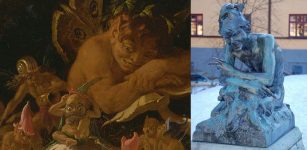 Playful Puck (Robin Goodfellow) – Master Of Harmless Mischief And Shakespeare’s Visit To The Magic Valley
Myths & Legends | Jun 24, 2021
Playful Puck (Robin Goodfellow) – Master Of Harmless Mischief And Shakespeare’s Visit To The Magic Valley
Myths & Legends | Jun 24, 2021 -
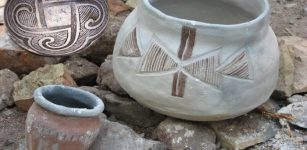 Fremont Indians: Unique 2,500-Year-Old Forgotten Culture Of North America
Artifacts | Jan 26, 2018
Fremont Indians: Unique 2,500-Year-Old Forgotten Culture Of North America
Artifacts | Jan 26, 2018 -
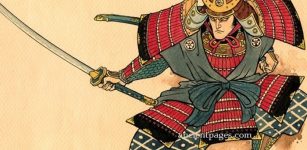 Everyday Life Of A Samurai: Armor, Appearance And Belongingness
Featured Stories | Nov 6, 2018
Everyday Life Of A Samurai: Armor, Appearance And Belongingness
Featured Stories | Nov 6, 2018 -
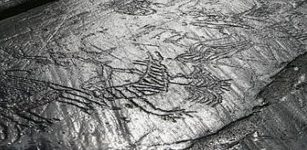 Ausevik Rock Art: Real And Mythical World Of Stone Age People Of Norway
Civilizations | Oct 2, 2018
Ausevik Rock Art: Real And Mythical World Of Stone Age People Of Norway
Civilizations | Oct 2, 2018 -
 Ancient Symbol Hamsa: It’s Meaning And History Explained
Ancient Symbols | May 20, 2020
Ancient Symbol Hamsa: It’s Meaning And History Explained
Ancient Symbols | May 20, 2020 -
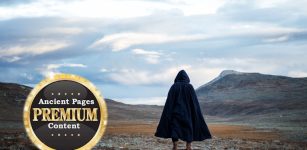 Mysterious Deaths In A Dangerous Valley May Be Related To Ancient Events
Featured Stories | Mar 14, 2022
Mysterious Deaths In A Dangerous Valley May Be Related To Ancient Events
Featured Stories | Mar 14, 2022 -
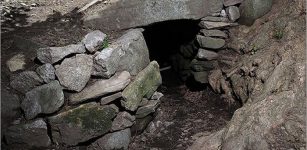 Ancient Mystery Of Upton Chamber Cave In Massachusetts: One Of The Largest Ancient Man-Made Structures In New England
Featured Stories | Oct 10, 2017
Ancient Mystery Of Upton Chamber Cave In Massachusetts: One Of The Largest Ancient Man-Made Structures In New England
Featured Stories | Oct 10, 2017 -
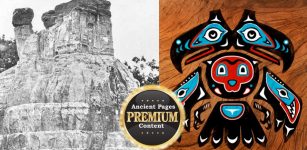 Ancient Mysteries Of Wisconsin – Great Forgotten Prehistoric Events Shed New Light On History Of North America
Featured Stories | Jan 11, 2019
Ancient Mysteries Of Wisconsin – Great Forgotten Prehistoric Events Shed New Light On History Of North America
Featured Stories | Jan 11, 2019 -
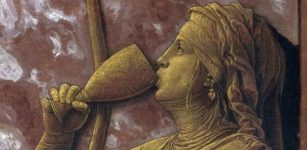 What Happened To Drunken Women In Ancient Rome?
Featured Stories | Aug 30, 2023
What Happened To Drunken Women In Ancient Rome?
Featured Stories | Aug 30, 2023 -
 Power Of Water In Beliefs Of Ancient Cultures
Featured Stories | Apr 9, 2019
Power Of Water In Beliefs Of Ancient Cultures
Featured Stories | Apr 9, 2019 -
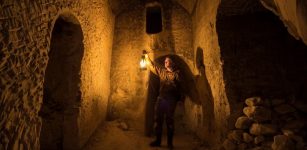 Mysterious Enormous Underground Labyrinth Of Egypt Holds Secrets Kept From The Outside World
Featured Stories | May 29, 2014
Mysterious Enormous Underground Labyrinth Of Egypt Holds Secrets Kept From The Outside World
Featured Stories | May 29, 2014 -
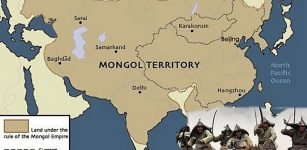 Pax Mongolica: Time Of Peace And Stability That Helped To Spread Technologies And Inventions
Ancient History Facts | Mar 28, 2016
Pax Mongolica: Time Of Peace And Stability That Helped To Spread Technologies And Inventions
Ancient History Facts | Mar 28, 2016 -
 The Ebers Papyrus – Most Famous Plant Medicine ‘Encyclopedia’ Of Ancient Egypt
Civilizations | Feb 3, 2016
The Ebers Papyrus – Most Famous Plant Medicine ‘Encyclopedia’ Of Ancient Egypt
Civilizations | Feb 3, 2016
